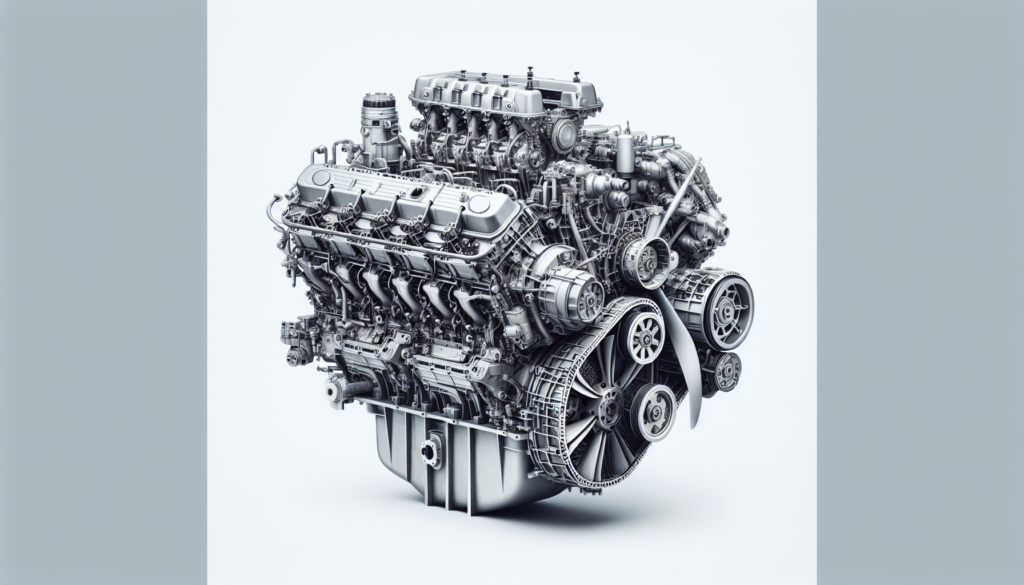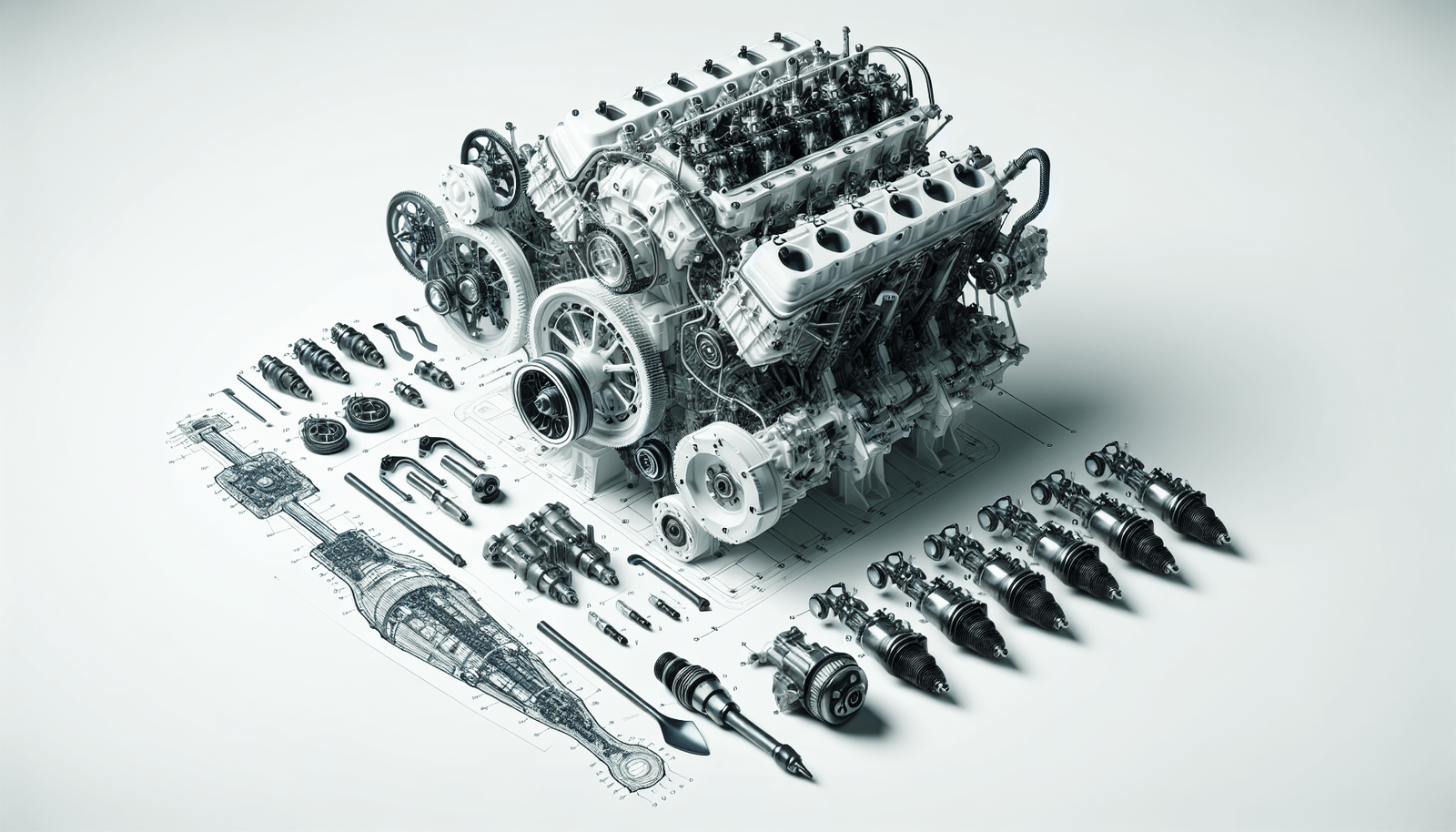So, you’ve finally decided to give your boat that much-needed boost. “What You Need to Know Before Upgrading Your Boat Engine” is the comprehensive guide you need. You’re about to journey through crucial elements like identifying the appropriate power levels, environmental considerations, and cost implications. Stress no more over your upgrade decisions; let this article be your reliable compass in making your boat the beauty you envisioned.

Understanding Your Current Engine
Before thinking about an upgrade, it’s essential to appreciate the current capabilities of your boat’s engine. You should have a good understanding of its horsepower, fuel efficiency, and its overall performance level. This will help you determine if an upgrade is actually needed, and if so, what type of upgrade will be most beneficial.
Appreciating the capabilities of your current engine
Take note of whether your boat achieves the speed you want, has the pulling power you need for towing, how frequently maintenance is required, and how much fuel it consumes. These are all important factors in gauging your current engine’s capabilities and should be your baseline when considering an upgrade.
Identifying reasons for upgrading
If you find your boat struggling to reach top speeds, consuming an excessive amount of fuel, or requiring frequent and costly repairs, it may be time to consider an upgrade. Other reasons for upgrading could be a desire for more power, better fuel efficiency, or simply wanting to take advantage of the latest boating technology.
Measuring the performance of your current engine
Before investing in a new engine, measure the performance of your current one. This can be as simple as timing how long it takes to reach certain speeds or noting fuel consumption rates. This benchmarking will allow you to quantify any improvements once you’ve upgraded.
Evaluating Upgrade Options
Once you’ve decided to upgrade, the next step is to evaluate the different options available in terms of the types of engines, their specifications, and the role of technology in their development.
Different types of engine upgrades available
Engine upgrades can take many forms. You may simply opt for a higher specification version of your current engine, or you may choose to go for a completely different type of engine, such as a more environmentally friendly option or one that boasts cutting-edge technology.
Comparing specifications of different engines
When comparing different engine specifications, consider factors such as horsepower, torque, fuel consumption, and size. These will directly correlate with the engine’s performance and the overall experience you’ll have on your boat.
Understanding the role of technology in modern boat engines
Technology plays a significant role in the development of modern boat engines. Features such as fuel injection systems, turbo chargers, and computerized control systems all contribute to enhanced performance, fuel efficiency, and user-friendly operation.
Consideration of Boat Usage
How you use your boat plays a crucial role in the type of engine you should consider.
How boat usage impacts your engine choice
If you’re using your boat for leisure cruising, you may prioritize comfort and fuel efficiency. However, if you use your boat for activities like water sports or offshore fishing, power and speed could be more important.
Types of engines for different types of boating activities
Different boating activities require different engine specifications. For instance, offshore fishing may require a more robust and durable engine, while water skiing or wakeboarding boats typically need high-torque engines for speedy, rapid acceleration.
Matching engine capabilities with most common usage
Ensure that the engine’s capabilities match your most common boat usage. If you mostly use your boat for gentle river cruising, a hugely powerful, high-performance engine would not only be overkill but also less fuel-efficient and more costly to maintain.

Budget Considerations
Just like any investment, upgrading your boat engine involves considering the total cost, evaluating the cost versus benefit, and understanding long-term maintenance costs.
Understanding the total costs involved in upgrading
The cost of an engine upgrade doesn’t stop at the initial purchase. There could be installation costs, the cost of upgrading other parts of your boat to accommodate the new engine, and potential increases in insurance coverage.
Evaluating cost versus benefit of upgrading
Evaluate the expected benefits of the upgrade against the costs. Will the upgraded engine provide enough of an increase in performance, fuel efficiency, or reliability to justify the expenditure?
Long-term maintenance costs to consider
An engine upgrade could influence your boat’s long-term maintenance costs. More powerful engines or those with high-tech features might require more frequent servicing or have higher repair costs.
Engine Size and Power
Engine size and power output are crucial factors to consider when contemplating an engine upgrade.
Relation between engine size and power output
Generally, the larger an engine, the more power it can produce. However, advancements in technology mean that smaller engines can now generate significant horsepower without sacrificing fuel efficiency or durability.
Understanding the importance of horsepower
Horsepower determines the maximum speed of your boat and its ability to maintain that speed in different conditions. It can also affect the boat’s handling, especially when changing direction or negotiating waves.
Effects of engine displacement on boat performance
Engine displacement, the size of the engine internal combustion chamber, can influence the overall boat performance. Larger displacement often means better low-end power and a higher top speed, but can also lead to higher fuel consumption.
Fuel Efficiency and Environmental Impact
With increasing environmental awareness, choosing a fuel-efficient, eco-friendly engine is a priority for many boat owners.
Benefits of choosing fuel-efficient engines
Fuel-efficient engines can save you money in the long run by reducing fuel consumption. Additionally, they also produce fewer emissions and are therefore better for the environment.
Impact of engine efficiency on the environment
Boat engines, like any internal combustion engines, generate CO2 emissions. By choosing a fuel-efficient engine, you can help to reduce carbon emissions contributing to global warming.
Evolution of eco-friendly boat engines
The boating industry is continuously innovating to develop more environmentally friendly engines, from models that produce fewer emissions to those powered by alternative fuels or electricity.
Installation Process
Installing the new engine is a critical process that affects its functionality and performance.
Understanding the steps involved in engine installation
Engine installation involves several steps and requires specific tools and expertise. The complexity of the process depends on the type of engine and the boat’s design.
Determining whether to DIY or hire professionals
Unless you’re an experienced mechanic, hiring a professional for the installation is generally a good idea. Incorrect installation can lead to performance issues and may even void the manufacturer’s warranty.
Potential challenges and obstacles in installation process
Installation challenges can range from the physical dimensions of the engine fitting in the engine compartment, to complications with connecting the engine to the existing boat systems. Detailed planning and professional assistance can help overcome these obstacles.
Legal and Safety Regulations
It’s essential to bear in mind the legal and safety aspects concerning marine engines.
Overview of marine engine laws and regulations
Different countries and states have different laws and regulations concerning boat engines. These can relate to noise levels, emission standards, and even the type of fuel that can be used.
Safety standards for boat engines
Engine safety standards generally cover exhaust systems, fuel systems, and electric systems. Using an engine that doesn’t meet these standards can lead to consequences ranging from fines to accidents.
Potential legal consequences of unauthorized engine modifications
Modifying your boat engine without proper understanding and disregard for laws might land you in legal trouble, including fines and penalties. Always consult with a professional before proceeding with significant modifications.
Maintenance and Care
Proper maintenance and care are crucial to get the best performance out of your upgraded boat engine.
Routine maintenance necessary for optimum performance
Routine maintenance includes tasks like changing the engine oil, inspecting the belts, cleaning the fuel system, and checking the cooling system. These tasks, while basic, are vital to ensure your engine runs smoothly and lasts longer.
Potential issues with upgraded engines
While upgraded engines offer enhanced performance and efficiency, they may also come with potential challenges. This can include the need for specialist parts or specific servicing requirements that can be time-consuming and expensive.
Importance of proper care in extending engine life
Alongside routine maintenance, general care like regular cleaning, avoiding excessive revving, and not overloading your boat can help to extend engine life and maintain peak performance.
Long-Term Value
An engine upgrade can affect the long-term value of your boat, both in terms of resale value and cost of ownership.
Effects of engine upgrade on boat resale value
An engine upgrade can potentially improve your boat’s resale value, especially if the new engine is more powerful, more efficient, or has desirable features.
Possible depreciation of upgrade over time
All boat engines, new or old, depreciate over time. However, a well-maintained, high-quality engine might hold its value better than others.
Financial benefits of optimized engine performance
A more efficient engine won’t just save you money on fuel costs. It could also reduce your maintenance costs, offer better reliability, and contribute to a better overall boating experience. This, in turn, adds value to your investment and your enjoyment of your favorite pastime.
In conclusion, upgrading your boat engine is a significant decision that influences your overall boating experience, costs, and enjoyment. Take the time to understand your current engine, evaluate upgrade options, consider how you use your boat, and contemplate the potential financial implications to ensure you make the best choice for your individual needs and circumstances.


[…] what you’re investing in. The upcoming article, “What Should You Know Before Buying a high-performance boat engine?”, aims to arm you with the critical knowledge you need to make an informed decision. The […]
[…] are several kinds of boat engine modifications. Here are a few of the most common […]